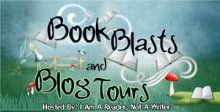
What do you consider the most challenging about writing a novel, or about writing in general? Finding the time to write and being disciplined enough to use that time effectively is my biggest challenge. It’s just so easy to make excuses. But of course, if you do that often enough, you never get anywhere.
Did writing this book teach you anything and what was it? When I started writing Widow Woman, it was a much different book than it is today. I thought I wanted to say one thing with it at first, but with every subsequent revision or rewrite, I realized that there were different, much deeper, messages underneath that needed to come out. It’s odd to say that those messages took me by surprise at times, but they did. From that I learned that I can’t force the story—it will become what it is meant to be, if I trust it.
Do you intend to make writing a career? Come hell or high water.
Have you developed a specific writing style? I’ve been told that my writing has a very poetic quality to it, but that’s not something I strive to achieve; I just try to write in such a way that readers can see what I see, feel what I feel. Any poetic effect is incidental to that.
What is your greatest strength as a writer? Tenacity.
Have you ever had writer’s block? If so, what do you do about it? I hope not to offend anyone out there, but I don’t believe in writer’s block. Have I been stuck? Yes, I think every writer gets stuck from time to time. For me, that’s a sign that I’m not done with my soft writing, so I walk away from it. I’ll think about the problem section, but I don’t sit in front of a blank screen and stew. I get on with my life, because it’s living, being in the world, that gives me the clues and inspiration I need to get unstuck. I read, I go to movies, talk with my husband and kids, have dinner with friends, run things past my writer’s group to see if maybe they can unlock something for me—but mostly, I ignore the book until something pops in my head and I’m ready to get back to work with it. Sometimes that process takes a long time—in one case, several months—but it’s never lasted longer for me than that. I think those long breaks from the actual writing are all part of a natural process, a natural rhythm. In any case, those breaks are inevitable; we all experience them.
Can you share a little of your current work with us? My current novel is Widow Woman, the story of a young woman who faces some shocking revelations about her mother in the wake of her mother’s death, revelations that cause her to question everything she thought she knew about who her mother was, about relationships—about the very nature of love itself.
How did you come up with the title? I wanted readers to come at this love story with a preconceived notion that would ultimately be destroyed by the events depicted in the book—perhaps a bit sadistic of me, but ultimately, necessary.
Can you tell us about your main character? She’s a product of her era: a young, somewhat sheltered woman playing the roles tradition expects her to play—until her life is turned upside down.
How did you develop your plot and characters? I had a basic outline in mind when I began writing, but there were some additional plot points required to keep the story moving along. I don’t write a formal outline, though I will jot down discrete events that will happen. As far as characters go, I take an informal “5-senses” approach, where I think about my character from every possible sensory angle. I write down everything I can think of: hair and eye color, favorite foods, accent, pet peeves, fragrances, favorite articles of clothing. Most of that material never makes it into the book, but it helps me get to know the characters very, very well, and that helps me remain faithful to the characters.
Who designed the cover? Alan Pranke of amp13. The man is a genius. ‘Nuff said.
Who is your publisher? I self-published. Higher royalties, complete control over every aspect of the process—what’s not to love?
Why did you choose to write this particular book? It tortured me until I released it.
What was the hardest part about writing this book? The revision process was excruciating for me, endless.
Did you learn anything from writing this book and what was it? That I can.
How do you promote this book? Social media plays a vital marketing role for me. I tweet, blog, and post regularly. I even have a Pinterest account, where I find and post things that tie in to my book or my writing life. I try to create my own buzz by seeking out events and opportunities for appearances, taking lots of pictures and videos, and sharing them ad nauseum across all the different social media I use.
Buy Now @ Amazon
Genre – Women’s Fiction
Rating – PG13
More details about the author
Connect with Julia Tagliere on Facebook & Twitter & GoodReads









No comments:
Post a Comment